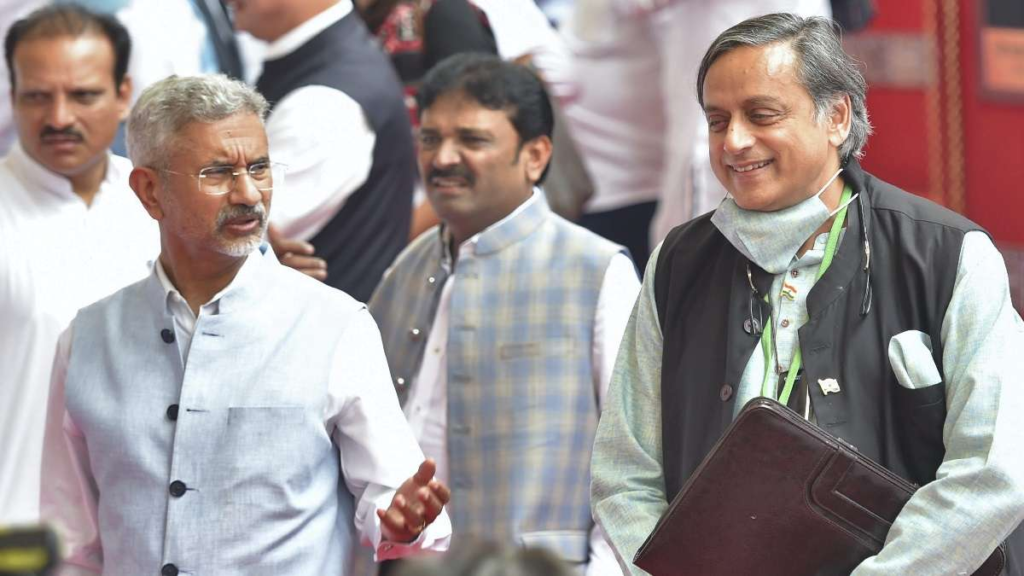Congress MP Shashi Tharoor has backed External Affairs Minister S. Jaishankar’s remarks in Parliament, acknowledging India’s concerns over the treatment of minorities in Pakistan. Tharoor emphasized that “it is a clear signal that we are concerned about the well-being of minorities in Pakistan.”
He noted that while India would typically raise such concerns through diplomatic channels, the absence of dialogue between the two nations has made direct communication difficult. “Another difficulty is that there is no real dialogue going on between India and Pakistan… Otherwise, we could have conveyed our concerns directly and sought redressal,” he pointed out.
Despite strained relations, Tharoor agreed with Jaishankar’s assessment of the situation, describing it as highly troubling. “The Minister’s statement was completely factual, and we should take note that there’s an extremely disturbing situation in our neighbouring country,” he added.
Jaishankar, speaking during Question Hour in the Lok Sabha, had strongly criticized Pakistan, stating that India closely monitors the treatment of minorities in the country. He highlighted the growing number of crimes and atrocities against religious minorities.
“In February (2025), there were 10 cases of atrocities against the Hindu community and three incidents related to the Sikh community. There were two cases pertaining to the Ahmadiyya community and one pertaining to the Christian community. We take up these cases on an international level,” he said.
Jaishankar also referred to a recent address by India’s representative at the UNHRC, emphasizing that Pakistan follows state policies rooted in “human rights abuses, persecution of minorities, and systematic erosion of democratic values” while continuing to “harbor UN-sanctioned terrorists.”

Beyond Pakistan’s human rights record, Jaishankar also took aim at the global handling of Kashmir. Speaking at the Raisina Dialogue during a session titled ‘Thrones and Thorns: Defending the Integrity of Nations,’ he called Pakistan’s control of parts of Kashmir “the longest-standing illegal occupation” of any territory since World War II.
He criticized the United Nations for turning the Kashmir invasion into a dispute rather than recognizing it as an act of aggression. “Now we went to the UN, what was an invasion was made into a dispute. So the attacker and the victim were put on par,” he remarked. Jaishankar further questioned the role of Western nations in shaping global narratives, stating, “Who were the culpable parties? UK, Canada, Belgium, Australia, USA. So, pardon me, I have some question marks on that one.”
He also pointed out a perceived double standard in global politics. “When the West goes out into other countries, it’s apparently in perseverance of democratic freedoms. When other countries come into the West, it seems to have a very malign intention,” he said.
Jaishankar’s remarks reaffirm India’s stance on Pakistan’s human rights violations and the Kashmir dispute, while Tharoor’s backing signals a broader political consensus on the matter.
